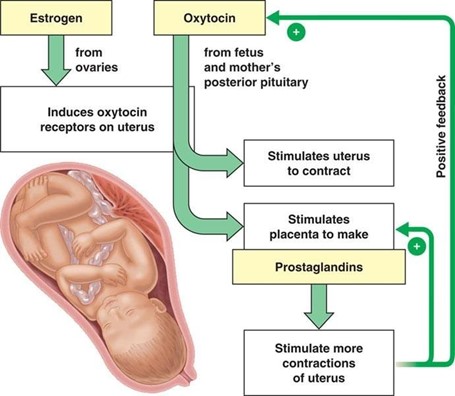Another person tells the practical nurse (PN) that her 7-year-old child frequently wets the bed at night. Which information should the PN provide?
"Require the child to change the bed linens during the night."
"This really is nothing to worry about at this time."
"Try withholding fluids after supper and before bedtime."
"You should see a urologist to rule out any abnormalities."
The Correct Answer is C
The PN should provide the information that it may be helpful to **try withholding fluids after supper and before bedtime**. Bedwetting is common and often runs in families. It can be upsetting, but most children and young people will grow out of it³. It’s not unusual for kids to wet the bed at night. Known formally as pediatric enuresis, uncontrolled nighttime urination affects as many as 5% to 10% of 7-year-olds in the United States.
Nursing Test Bank
Naxlex Comprehensive Predictor Exams
Related Questions
Correct Answer is D
Explanation
Fetal heart rate (FHR) is one of the essential indicators of fetal well-being during labor. A fall in FHR following each contraction is known as recurrent deceleration and can be an indication of fetal distress. In this case, the PN should first reposition the client laterally, as this may help to alleviate compression of the umbilical cord and improve fetal oxygenation.
A. Administering oxygen at 10 L/face mask may be necessary, but it is not the first intervention to be implemented in this scenario.
B. Discontinuing oxytocin infusion may be necessary, but it is not the first intervention to be implemented in this scenario.
C. Observing perineum for cord prolapse is not necessary in this scenario.

Correct Answer is B
Explanation
The best indicator to the practical nurse (PN) that the community bicycle safety education program was effective is that the number of students wearing bicycle helmets increased by 10%. Wearing a helmet while riding a bicycle is an important safety measure that can help prevent head injuries in the event of an accident. An increase in the number of students wearing helmets indicates that the program was successful in promoting this safety behavior. The other findings listed may also provide useful information about the effectiveness of the program, but the increase in helmet use is the most direct and measurable indicator of success.
Whether you are a student looking to ace your exams or a practicing nurse seeking to enhance your expertise , our nursing education contents will empower you with the confidence and competence to make a difference in the lives of patients and become a respected leader in the healthcare field.
Visit Naxlex, invest in your future and unlock endless possibilities with our unparalleled nursing education contents today
Report Wrong Answer on the Current Question
Do you disagree with the answer? If yes, what is your expected answer? Explain.
Kindly be descriptive with the issue you are facing.
